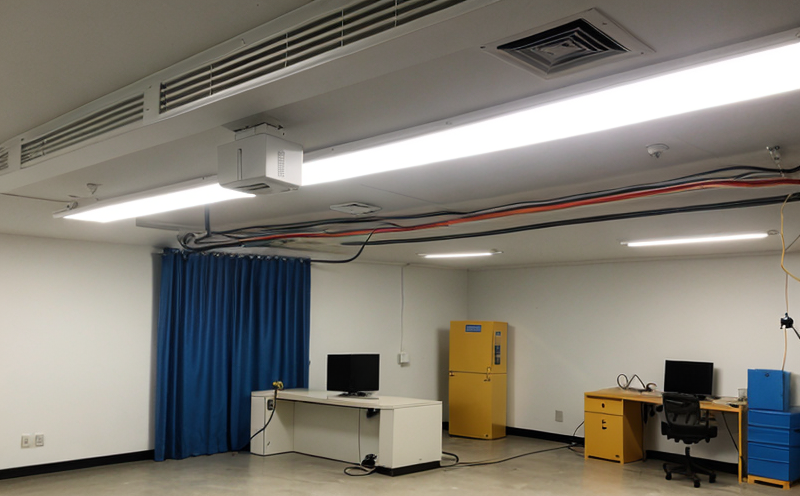IEC 60950-1 Safety of Information Technology Equipment
The IEC 60950-1 standard is a critical component in ensuring the safety and reliability of information technology (IT) equipment. This international standard specifies essential requirements for electrical insulation, protection against electric shock, and other related safety aspects that apply to IT devices such as computers, printers, network routers, and more.
The test addresses potential hazards associated with exposure to electrically energized parts, which can lead to fatal or disabling injuries if not properly managed. The standard covers a wide range of equipment that falls under the scope of information technology, including but not limited to personal computers, servers, and network devices used in both residential and commercial settings.
The testing process involves several key aspects:
- Electrical insulation checks
- Protection against electric shock
- Emission control measures
- Grounding and bonding requirements
- Fault current detection mechanisms
- Operational safety under abnormal conditions
The testing process ensures that the equipment is safe to use, even in environments where users may not be technically proficient. By adhering to these stringent standards, manufacturers can ensure compliance with international regulations and guidelines.
Testing laboratories accredited for IEC 60950-1 are equipped with state-of-the-art facilities designed to simulate real-world conditions that equipment might encounter during use. This includes the ability to conduct tests under various environmental and operational scenarios to verify the safety of the product.
The acceptance criteria for this standard are stringent, ensuring that only products meeting these high standards can be declared compliant. Laboratories follow rigorous protocols to ensure accurate and repeatable test results. Compliance with IEC 60950-1 is not just about passing a regulatory requirement; it's about enhancing product safety and protecting users from potential hazards.
Understanding the nuances of this standard helps stakeholders, including quality managers, compliance officers, R&D engineers, and procurement professionals, make informed decisions. It ensures that they are aware of the specific testing requirements and how these relate to broader industry standards like ISO or ASTM.
Why Choose This Test
- Ensures Safety: IEC 60950-1 guarantees the safety of IT equipment, protecting users from electric shock and other hazards.
- Compliance with International Standards: Compliance ensures that your product meets international standards, enhancing its marketability globally.
- Rigorous Testing Protocols: The testing process is thorough, ensuring the highest level of safety for end-users.
- Expertise in Safety Engineering: Our laboratory specializes in the latest safety engineering techniques and methodologies.
The IEC 60950-1 standard is essential for any manufacturer looking to ensure their IT products are safe, reliable, and compliant with international standards. By choosing this test, you can demonstrate your commitment to quality and user safety.
Customer Impact and Satisfaction
- Enhanced Safety: Products that comply with IEC 60950-1 are safer for consumers, leading to higher satisfaction levels.
- Better Reputation: Compliance enhances the reputation of your brand, making it more trusted and preferred by customers.
- Increased Sales: A compliant product can open doors to new markets and increase sales opportunities globally.
- Fewer Complaints and Returns: By ensuring compliance with this standard, you reduce the likelihood of customer complaints and returns.
The IEC 60950-1 test not only ensures safety but also enhances customer satisfaction by providing a product that is reliable and meets international standards. This can significantly impact your brand's reputation and sales performance.
Competitive Advantage and Market Impact
Compliance with IEC 60950-1 offers significant competitive advantages in the market. It demonstrates your commitment to safety, which can be a decisive factor for potential customers. This standard ensures that your products meet global safety requirements, making them more attractive to international buyers.
The impact on the market is substantial, as it opens up new opportunities for export and domestic sales. By adhering to this standard, you not only comply with regulations but also set a benchmark for quality and reliability. This can lead to increased market share and customer loyalty.





